As busy college students, work is not a foreign concept to us. In fact, it is so familiar that we often find ourselves defaulting to using “work” as an answer when asked what we did, what we are currently doing, or what we plan to do later. Although work percolates many domains of my life, I still struggle with fully committing to my work as I battle with internal and external distractions. Hence, I decided to track how often I break my concentration while working in hopes of changing my poor habits!
To better understand why I exhibit this behavior, I used a fishbone diagram to hone in on all the different reasons as to why I seldom can concentrate on my work.
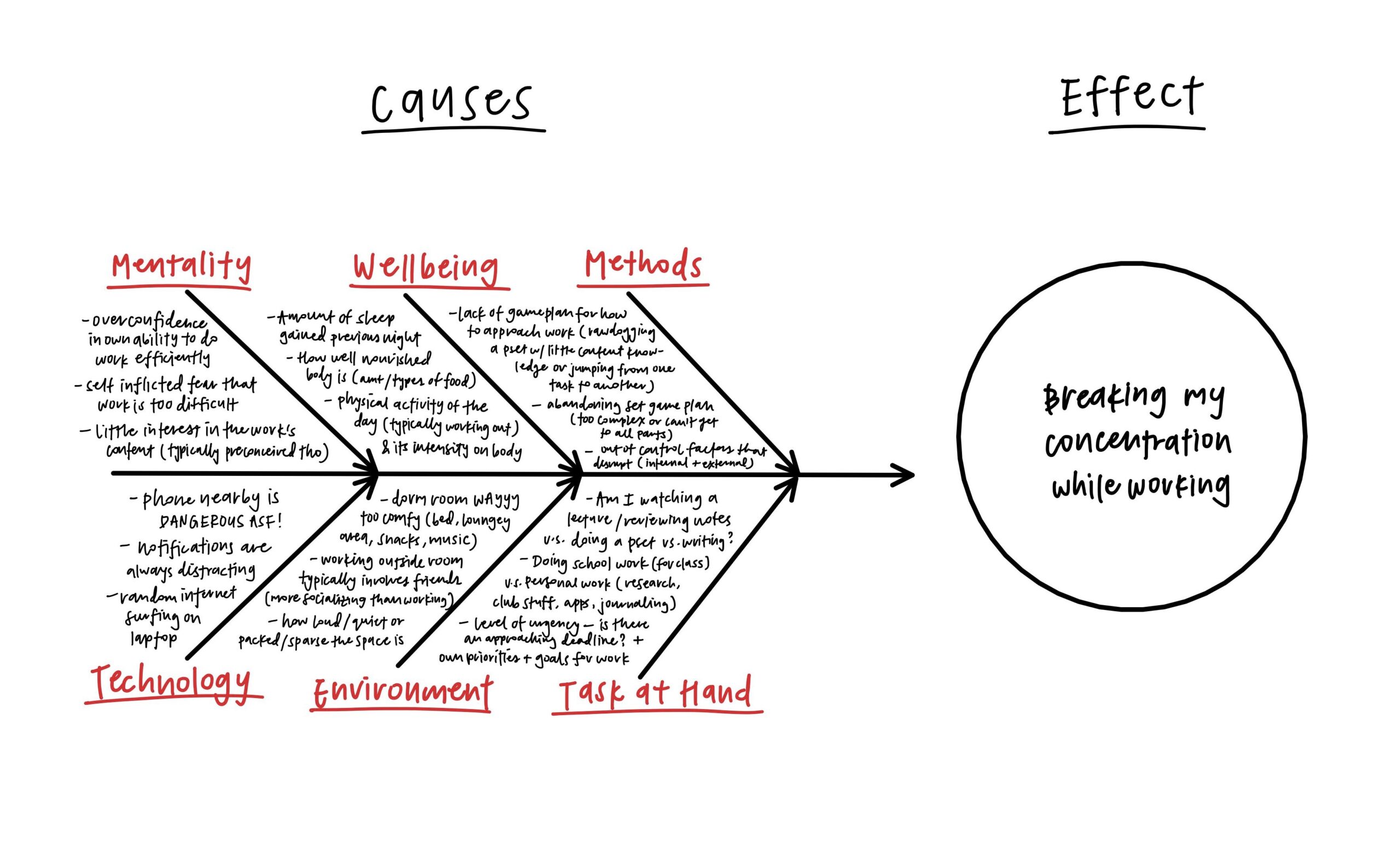
Measuring My Behavior
I chose different work goals to focus on while considering three main variables: the location I was working from, on/off device notifications, and following an outlined study method (pomodoro). On the first day (Monday, January 16th), I blocked off a 3 hour window of time (1-4 PM) with the intention of doing my pset for ME 80. I found a spot in Tressider, switched all devices to “Do Not Disturb” mode, and followed a rough pomodoro schedule (started off with 30 minutes of work followed by a 5 minute break and progressively increased work time / decreased break time, eventually hitting 60 minutes of work followed by a 15 minute break).
On the second day (Tuesday, January 17th), I blocked off another 3 hour window of time (7-10 PM) with the intention of doing some reading for PSYCH 140. This time, I worked in my dorm room, placed my phone out of sight but not on “Do Not Disturb” mode, and again followed a pomodoro schedule.
To measure my behavior, I used my notes app to keep track of whenever I would do one or more of the following: (1) pick up my phone to use; (2) open non-work related tabs on my laptop; or (3) engage in conversations/activities not related to the current work at hand.
My Experience
The first day of work was quite productive. While I originally planned on working alone to minimize distractions, I ended up meeting with friends to eat brunch that day, and we decided to do work together after eating. Once we found a spot to camp at for the next few hours, I turned on DND, set pomodoro timers, and got to work. Throughout the entire time block, I caught myself picking up my phone five times (outside the allotted break periods) to look at any notifications on my lockscreen, looking at my Spotify desktop app three times, and briefly commenting on my friends’ conversations two times. About one hour into working, I began deviating from the pomodoro schedule as I became fixated on solving the homework problems. Even when I was struggling to figure out something, I budgeted some time to search the internet for videos or similar problems. I did notice that once I began to grasp onto a concept, I counted that as a mini reward and would break away from the work for a bit. Typically, these uncalled-for breaks would slowly accumulate into large chunks of lost time, but perhaps since I actively and explicitly planned out how I would make this session as productive as possible (plus had the pressure of a < 24 hour deadline and was hyper-aware of my bad habits due to this assignment heh), I quickly got back on track every time I began to lose focus. At the end of the work session, I had almost finished my entire pset (just needed to tackle the last problem and double-check answers)!
Compared to the previous day, the second day of work could have been more productive. Tuesday’s are one of my busiest days of the week, and after being out from 11 AM to 5 PM, all I wanted to do was eat dinner and go back home to rest. However, I knew I had to finish up this assignment, so I quickly grabbed a bite at the dining hall and headed back to my room to mentally prepare for the upcoming work session. Just before it hit 7 PM, I situated myself at my desk, placed my phone onto my bed (notifications were still on, but phone was out of sight), and set pomodoro timers. Throughout this work session, I noticed myself being a lot more restless. Perhaps it was multiple factors, namely the type of work I was doing (something more “passive” like reading vs “active” like solving physics problems), the location I was working from (private + have areas to rest, including my bed and a lounge area I made underneath my bed lol), and the lack of external accountability (i.e. nobody can see me not doing work), that all contributed to my interrupted workflow. While I’ve gotten quite good at not being distracted by notifications, I still haven’t defeated the toxic short bursts of dopamine from scrolling through social media. Even though my phone was physically far from me, I would still be tempted to leave my desk and get it or simply use the browser versions of apps. With that, I used my devices for non-work related things about ten times. I laid in my lounge area about five times. Instead of deviating from the pomodoro schedule because I no longer felt the need to rely on it, I completely broke away from the system that was keeping me grounded for some time. At the end of the night, I had probably read less than half the text.
What I Would Change Next Time
The largest overall change I would make next time is taking a less experimental approach to this assignment. Admittedly, I never follow a consistent “routine” when doing work. My device notifications can be on or off, I could be in my room or outside, I could be working alone or with others, and I could be strictly following the pomodoro method or loosely keeping track of long working periods versus short breaks. Also, “doing work” can encompass so many tasks, each with different deadlines, levels of importance, magnitudes of interest, etc. that play a role in how productively I approach the work. Perhaps I can choose the same task to work on and do it at the same location (+ alone) to get fairer observations of what kind of behaviors I tend to display when engaging in work. Overall, I do hope to find lasting ways to improve my productivity; as depicted in this connection circle, there are so many wonderful benefits to working more efficiently!
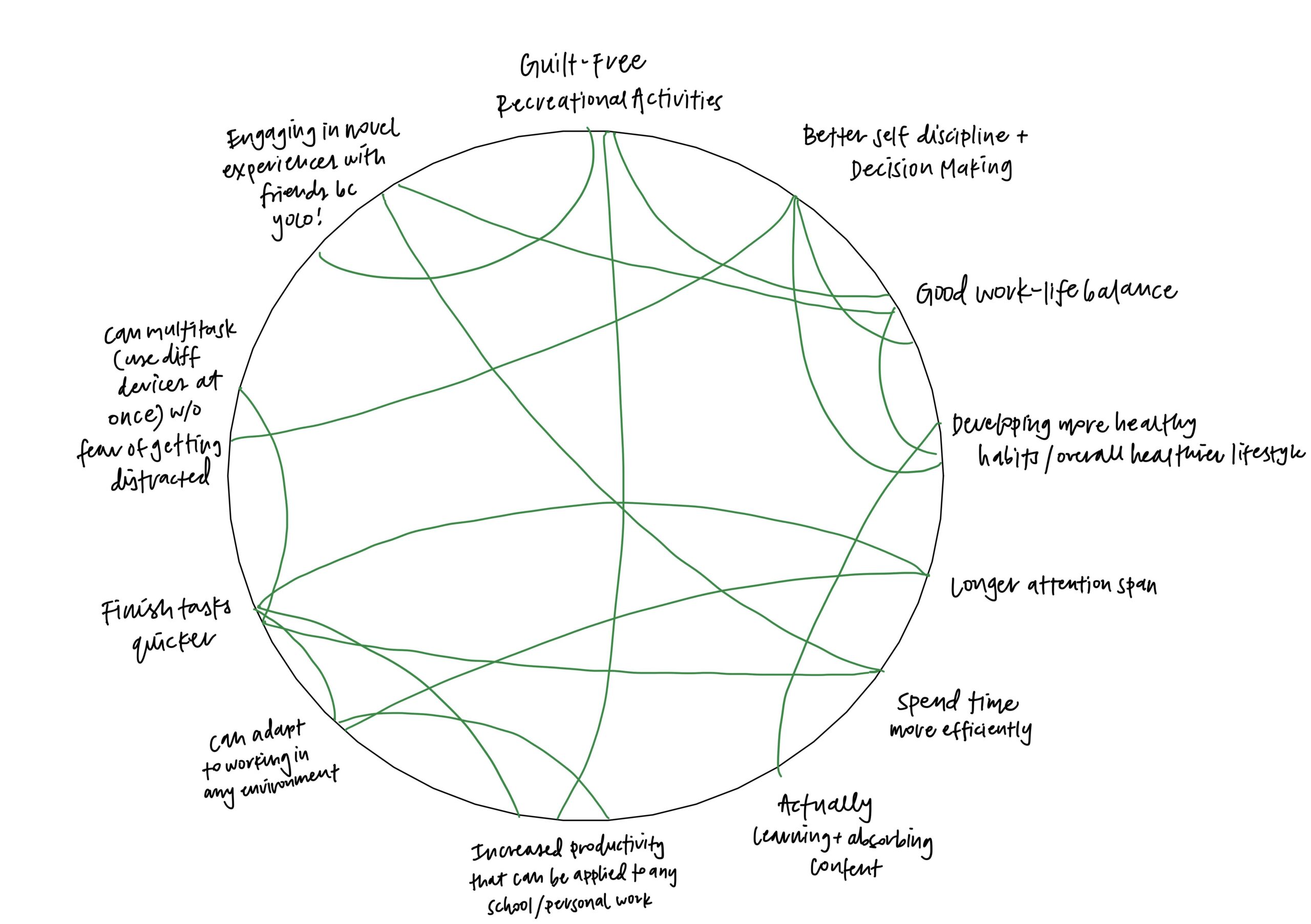

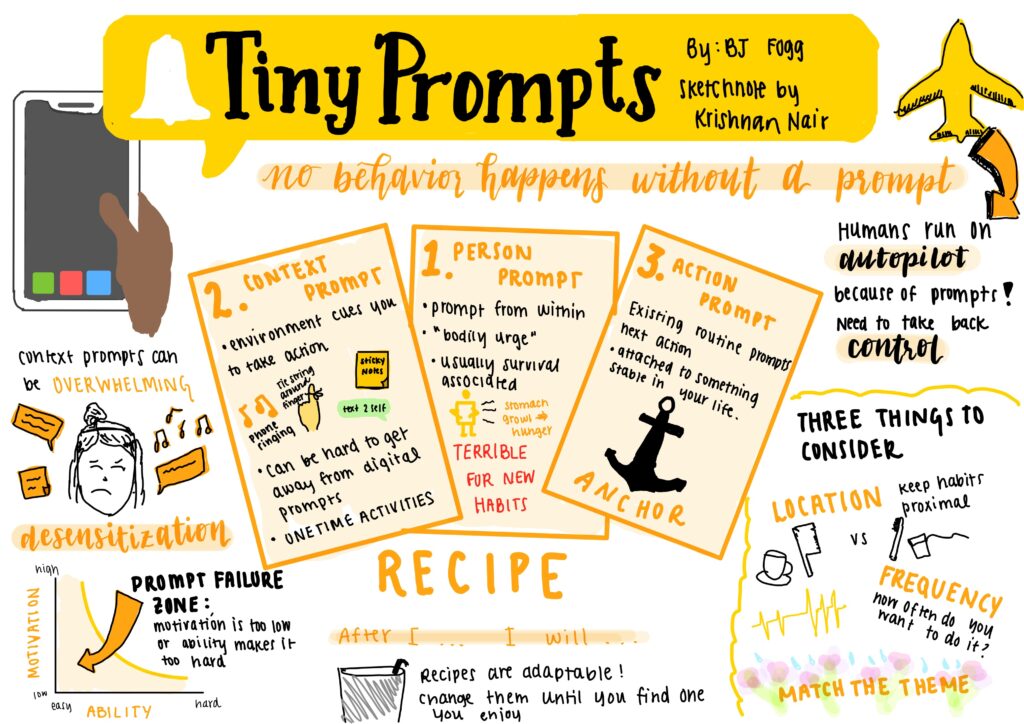
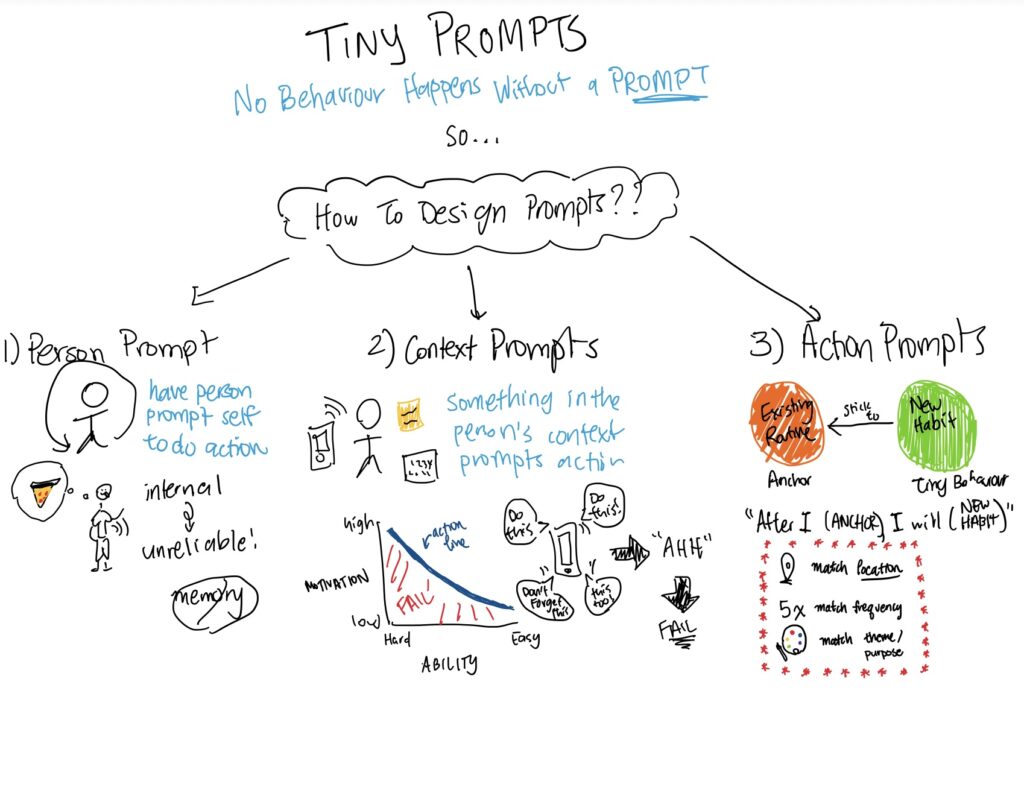
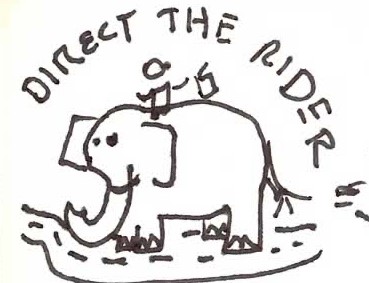
Great work noticing your interruptions (and being honest with yourself.)